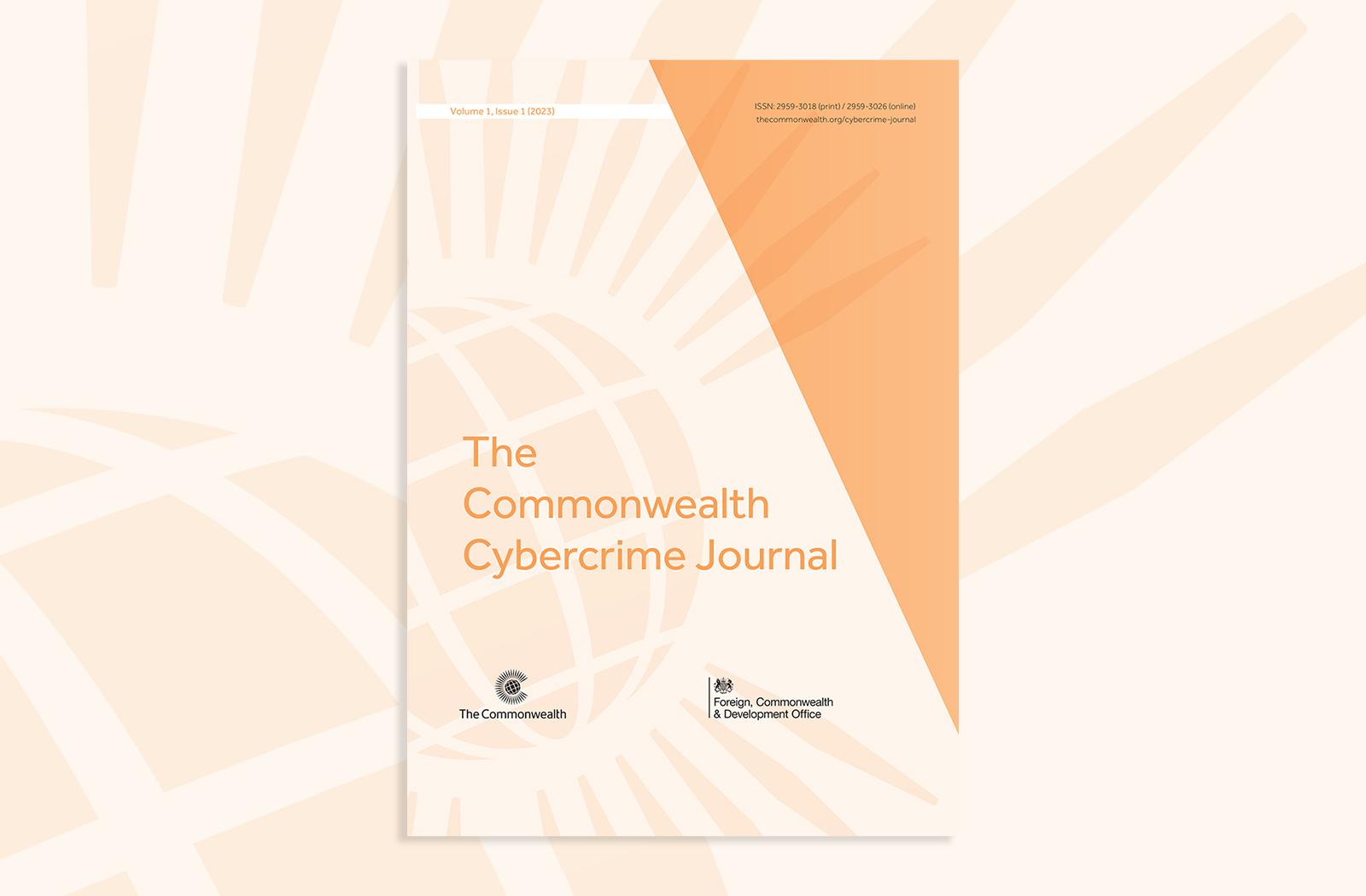
Use the links below to navigate to short abstracts of each article, with options to read the full abstract or download the full article as a PDF.
Contents
- Editorial
Nkechi Amobi and Tawanda Hondora - Cybercrime and the Adoption of Artificial Intelligence Systems for Judicial Decision-Making in Criminal Justice Systems
Dan Svantesson - Cybercrime in Commonwealth West Africa and the Regional Cyber-Criminogenic Framework
Tim Hall and Ulrike Ziemer - Cyber Diplomacy Co-operation on Cybercrime between Southeast Asia and Commonwealth Countries
Mark Bryan Manantan - UK Cybercrime Victims and Reporting: A Systematic Review
Juraj Sikra, Karen V. Renaud and Daniel R. Thomas - A Comparative Review of Cybercrime Laws in Kenya
Brian Sang YK and Ivan Sang - Cybercrime and its Links to Organised Crime in the Caribbean
Sophie Brain and Olajide Oyadeyi - Data Security Concerns Raised by Bring-Your-Own-Device (BYOD) in Corporate Organisations’ Hybrid and Remote Work Environments in Nigeria
Rotimi Ogunyemi and Akintunde Idowu
Editorial
Nkechi Amobi and Tawanda Hondora
Short abstracts
Cybercrime and the Adoption of Artificial Intelligence Systems for Judicial Decision-Making in Criminal Justice Systems
Dan Svantesson
There is a natural temptation to turn to AI to improve efficiencies and the rates of prosecution and adjudication of cybercrime. However, since the criminal justice system is one of society’s most sensitive functions, there is a need to proceed with extreme caution. The article provides guidelines on the adoption of AI systems for judicial decision-making in criminal justice systems, outlining current uses, perceived benefits, and the risks and challenges of AI systems in this context. It also makes recommendations regarding structural considerations that may serve to enhance co-operation and the sharing of knowledge.
Cybercrime in Commonwealth West Africa and the Regional Cyber-Criminogenic Framework
Tim Hall and Ulrike Ziemer
A central conundrum of cybercrime is that, despite being something that can be undertaken anywhere in the world with a connection to the internet, it tends to be disproportionately associated with a small number of Commonwealth countries. The article critically reviews the various literature that speak of these cybercrime geographies, and develops a framework that outlines the economic and social conditions that collectively identify as present within high cybercrime nations. The authors then apply this framework to Commonwealth West Africa and, finally, consider the lessons of their analysis for anti-cybercrime policy.
Cyber Diplomacy Co-operation on Cybercrime between Southeast Asia and Commonwealth Countries
Mark Bryan Manantan
Advancing the concept of peer-to-peer learning among states in the Global South, this article defies the conventional dyad of co-operation between developed and developing economies prevalent in the cyber diplomacy literature. This affords developing economies new pathways of collaboration to further reinforce their agency and autonomy. Given the shared contextual experiences of and mutual interests in combatting the increasing threats of cybercrime – and preserving regional and multilateral forums as neutral platforms, amid deepening strategic rivalry and the deterioration of global consensus on internet governance – Southeast Asian and Commonwealth countries can explore peer-to-peer learning as a viable alternative model of cyber diplomacy co-operation. Overall, the article’s analysis and insights enrich the extant cyber diplomacy literature, while its policy recommendations promise to catalyse innovative, multi-stakeholder and cross-regional cyber capacity-building initiatives on cybercrime.
UK Cybercrime Victims and Reporting: A Systematic Review
Juraj Sikra, Karen V. Renaud and Daniel R. Thomas
A comprehensive analysis of the problem of cybercrime victim underreporting in the United Kingdom. They argue that the reasons for underreporting cybercrime can be broken into three groups: types of cybercrime victims (individuals, private and public organisations); factors that affects victimhood (vulnerability, psychology, age, and research-driven models); and the realisation that improvements in cybercrime reporting are predominantly technical. The article makes the case that the latter factor ignores the social component of cybercrime, thereby failing to acknowledge the reporting-deterring side-effects of the UK’s cyber responsibilisation agenda. The authors also make recommendations for how cybercrime reporting in the UK might be improved.
A Comparative Review of Cybercrime Laws in Kenya
Brian Sang YK and Ivan Sang
A critical review of Kenya’s Cybercrimes Act which systematically compares two international treaty instruments that influenced the drafting of the Act – the Budapest Convention on Cybercrime and the African Union Convention on Cyber Security and Personal Data Protection. The authors interrogate specific provisions of the Cybercrimes Act that are deemed inconsistent with international treaties and in-breach of Kenya’s Constitution. The article recommends the amendment of these defective provisions to avoid the risk of interfering with digital rights and undermining the efficacy of Kenya’s regime of cybercrime law.
Cybercrime and its Links to Organised Crime in the Caribbean
Sophie Brain and Olajide Oyadeyi
An examination of the relationship between organised crime and cybercrime in the Caribbean against the backdrop of the recent, explosive digital transformation experienced by the region. This, combined with low levels of cyber-resilience, have made the region an attractive target for cybercrime. The authors discuss how organised crime groups have exploited these vulnerabilities by taking advantage of the internet to perform illicit activities. The article highlights how the Caribbean region remains acutely unprepared to deal with cyberattacks and how, in several instances, the COVID-19 pandemic starkly exposed these weaknesses. The authors make recommendations on how this deficit can be curtailed.
Data Security Concerns Raised by Bring-Your-Own-Device (BYOD) in Corporate Organisations’ Hybrid and Remote Work Environments in Nigeria
Rotimi Ogunyemi and Akintunde Idowu
Considering the benefits and drawbacks of BYOD in corporate organisations, the authors explore the legal and practical implications of BYOD policies in Nigeria, and assess the judiciary’s approach to determining BYOD cases, by comparing case laws from various jurisdictions to establish the inconsistencies in the Nigerian legal framework. The article analyses data management and security practices associated with processing employees’ personal data and provides cybersecurity policy recommendations for remote and hybrid work to balance the rights and interests of businesses, employees and other stakeholders.





